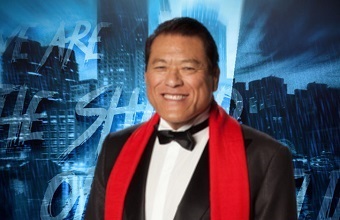Antonio Inoki: A Legend’s Journey from Career to Immortality
In the annals of professional wrestling history, few names stand as tall as Antonio Inoki. A revered figure in both the sport and the realm of Japanese pop culture, Inoki’s career was a remarkable blend of athleticism, charisma, and innovation that left an indelible mark on the wrestling world. From his early days in the ring to his larger-than-life bouts, and ultimately to his enduring legacy, Antonio Inoki’s story is one of triumph, controversy, and a lasting impact on the sport he loved.
Rise to Prominence: A Pioneering Spirit
Antonio Inoki, born Kanji Inoki on February 20, 1943, in Yokohama, Japan, was drawn to wrestling from a young age. His journey into the world of professional wrestling began in the early 1960s when he trained under the guidance of renowned Japanese wrestler Rikidōzan. Inoki quickly proved his mettle and exhibited a unique blend of techniques influenced by various martial arts disciplines, particularly judo and karate. This fusion of styles would become his signature in the ring.
In 1966, Inoki’s remarkable skill set garnered him international attention when he participated in the World Wrestling Federation’s (WWF, now WWE) inaugural World Championship Tournament. This exposure on the global stage further solidified his reputation as a unique and formidable competitor. His later creation of the martial art “strong style,” characterized by its emphasis on realism and physicality, played a pivotal role in shaping the future of professional wrestling.
The Birth of New Japan Pro-Wrestling (NJPW)
Perhaps one of Antonio Inoki’s most enduring contributions to the wrestling world was the establishment of New Japan Pro-Wrestling (NJPW) in 1972. This promotion was a response to Inoki’s vision of elevating Japanese wrestling to new heights of credibility and entertainment. NJPW’s emergence signaled a shift in the wrestling landscape, as it introduced a more dynamic and competitive style that resonated with audiences across Japan and beyond.
Inoki’s own matches during this era were characterized by epic battles against international legends like Karl Gotch and Muhammad Ali. Notably, Inoki’s exhibition match against Ali in 1976 remains etched in history. The “Bout of the Century” pitted a wrestler against a boxer and showcased Inoki’s unorthodox approach, as he spent much of the bout on his back, kicking at Ali’s legs. Although the match ended in a controversial draw, it spotlighted Inoki’s willingness to experiment and push the boundaries of the sport.
The Controversial Collision with MMA: Inoki vs. Ali
As Inoki’s career reached its zenith, he embarked on a venture that would forever link his name with the burgeoning world of mixed martial arts (MMA). In 1976, he faced off against boxer Muhammad Ali in a hybrid wrestling-boxing match that captured the world’s attention. The bout, however, was plagued by confusion and controversy, with Inoki’s repeated leg kicks leading to a largely static and unconventional contest.
While the Inoki vs. Ali match left an undeniable mark on combat sports history, it also exposed the potential pitfalls of cross-disciplinary contests. Despite the ambiguity surrounding the outcome, this event underscored Inoki’s status as a pioneer willing to experiment with new formats and approaches.
The Final Bell: Antonio Inoki’s Retirement
In 1998, after decades of pushing the envelope in wrestling and combat sports, Antonio Inoki formally retired from in-ring competition. His legacy, however, continued to evolve as he transitioned into other roles within the wrestling world. Inoki’s influence extended beyond the ring and into the realm of politics, as he was elected to the Japanese House of Councillors, where he focused on sports-related issues and diplomatic missions. This multifaceted approach reflected his lifelong dedication to promoting the positive aspects of martial arts and wrestling.
Passing the Torch: Antonio Inoki’s Legacy
Antonio Inoki’s impact on the wrestling world and beyond remains palpable long after his retirement. NJPW, the promotion he founded, has continued to thrive and produce world-class talent. Moreover, his efforts in pioneering MMA-style matches laid the groundwork for the development of modern mixed martial arts organizations.
Inoki’s legacy also extends to his influence on generations of wrestlers and combat sports enthusiasts. His unique philosophy of “fighting spirit” and dedication to authenticity in the ring continue to inspire athletes to embrace the art of storytelling through physicality. This philosophy can be seen in the ongoing evolution of wrestling styles around the globe.
The Eternal Flame: Remembering Antonio Inoki
On October 1, 2022 Yahoo News Japan confirmed Inoki passed away on Saturday morning in Japan. Inoki, was 79 years old and had been battling health problems in recent years and had been confined to a wheelchair. Inoki died from systemic transthyretin amyloidosis
Antonio Inoki’s journey from a young wrestling enthusiast to a global icon is a testament to his passion, innovation, and relentless pursuit of excellence. His pioneering spirit opened doors for countless athletes and helped shape the landscape of professional wrestling and combat sports. As the years roll on, his name will continue to echo in arenas, training dojos, and the hearts of those who have been touched by his remarkable legacy.
